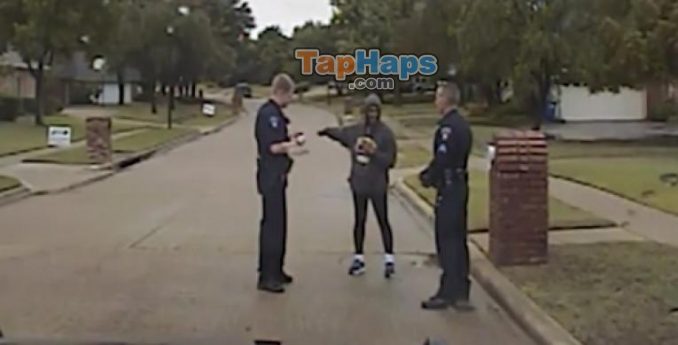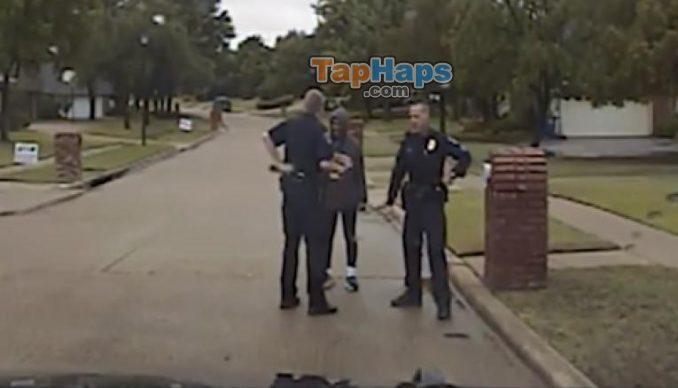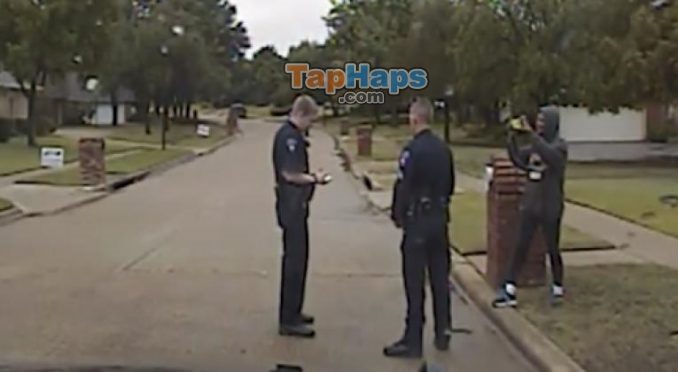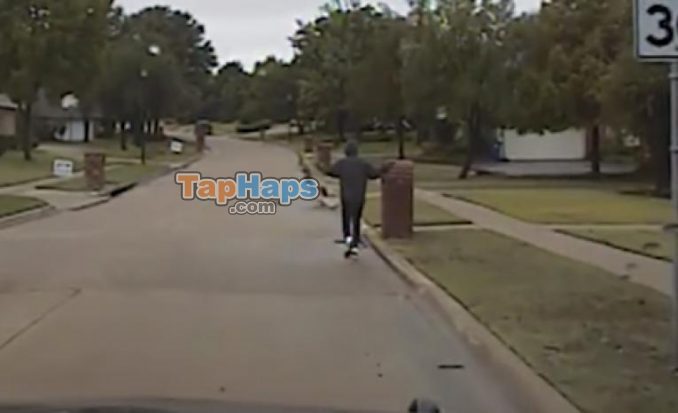A woman was out for a walk when she says the police stopped her because she was “walking while black.” After the cops were accused of racial profiling, the dashcam footage was released, and it shows why the officers really stopped this woman.

The Corinth Police Department came under fire after they stopped Dorothy Bland who was simply walking in her neighborhood. Little did they know, she was a University of North Texas journalism professor, and she was about to blast them in an editorial for Dallas News, claiming that the Texas police officers approached her with sirens and flashing lights while on her daily morning walk in her upscale neighborhood because she was “walking while black.”
“Flashing lights and sirens from a police vehicle interrupted a routine Saturday morning walk in my golf-course community in Corinth,” wrote Bland. “Like most African-Americans, I am familiar with the phrase ‘driving while black,’ but was I really being stopped for walking on the street in my own neighborhood?”

Her column was published four days after the incident, and it made many very bold claims about it. “I had no interest in my life’s story playing out like Trayvon Martin’s death,” her column said. “I stopped and asked the two officers if there was a problem; I don’t remember getting a decent answer before one of the officers asked me where I lived and for identification,” Bland alleged. “I guess I was simply a brown face in an affluent neighborhood.”
After the professor’s published accusations of racial profiling by the Texas officers began to spread across the internet, the police chief decided to fight back. First, the Corinth Police Department wrote a response to Bland, which was also published in the Dallas News, according to BuzzFeed. Corinth Police Chief Debra Walthall said the encounter was not about race, but about Bland’s safety. Then, the Corinth police released the dashcam video.
The dashcam footage showed Bland walking in the street before a police sergeant and an officer trainee stop her. Her back was to the officers, who were in their patrol car, and the woman had a hood covering her head. From behind, you could only see her grey sweatshirt and black pants as her entire body was covered by clothing on the rainy Saturday morning.
When the cops got out of the car and approached Bland, they immediately advised her that her safety was at risk and told her that she needed to walk on the other side of the street so that she could see oncoming traffic. The cops mentioned a truck, saying she did not see it and she impeded traffic, and also explained that they had followed her for some time without her taking notice.

“We didn’t want you to get hit,” one of the concerned officers told Bland. He then asked her for identification, which she did not have on her. So, the officer took her name and date of birth and radioed it into the station. As the officer obtained his documentation, Bland also began to take note of the incident, snapping photos of the officers and their vehicle.
Before she was released, Bland told the cops that she can’t believe she was stopped for walking and reminding the officers that she is a law-abiding, tax-paying citizen. She then left without further incident. But, her scathing column told a very different story than the actual video of the incident. Luckily, Chief Walthall wasn’t about to let the reputation of her officers be ruined with false allegations.

“They immediately advised … that it was safer for her to walk against traffic so she could see the cars and jump out of the way if necessary,” Walthall wrote in response to Bland’s column. “Impeding traffic is a Class C misdemeanor, and it is our policy to ask for identification from people we encounter for this type (of) violation,” she explained. “I am surprised by her comments as this was not a confrontational encounter but a display of professionalism and genuine concern for her safety.”
After the release of the dashcam footage, which contained no evidence to support Bland’s claims and refuted the accusation, the professor told NBC News that she had nothing more to add and that she was ready to move on and focus on her job. But, that’s simply not good enough. Something more does need to be said.

Racism has left an ugly mark on our nation’s history; however, we’ve come a very long way. Is the world perfect? Sadly, it’s not. But, we don’t end racism by jumping to false conclusions and making everything about race. Not everything that happens to a person is based on the color of their skin. In reality, very little actually is. Racism isn’t the first conclusion we should draw when determining why something occurred.
In this case, anyone behind the woman, including the officers, couldn’t determine her race. Her clothes, including her hood, covered her skin completely. Instead of evaluating the incident rationally and asking questions to clarify what was happening, an emotional reaction was had and her conclusion was inaccurate. This is all too often the case when it comes to allegations of racism — it’s an assumption not founded in reality.
Source: Tap Worthy Happenings
0 Comments